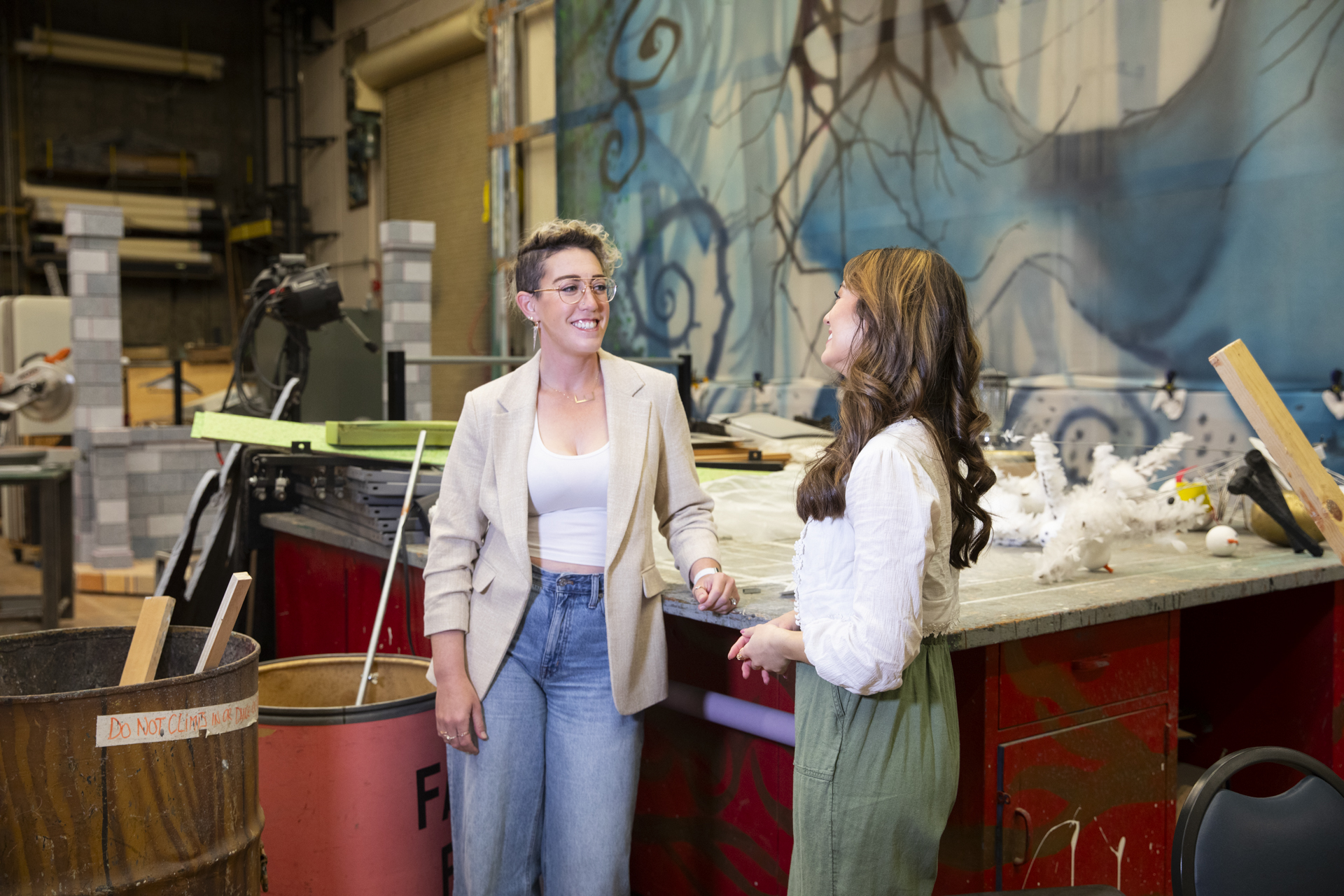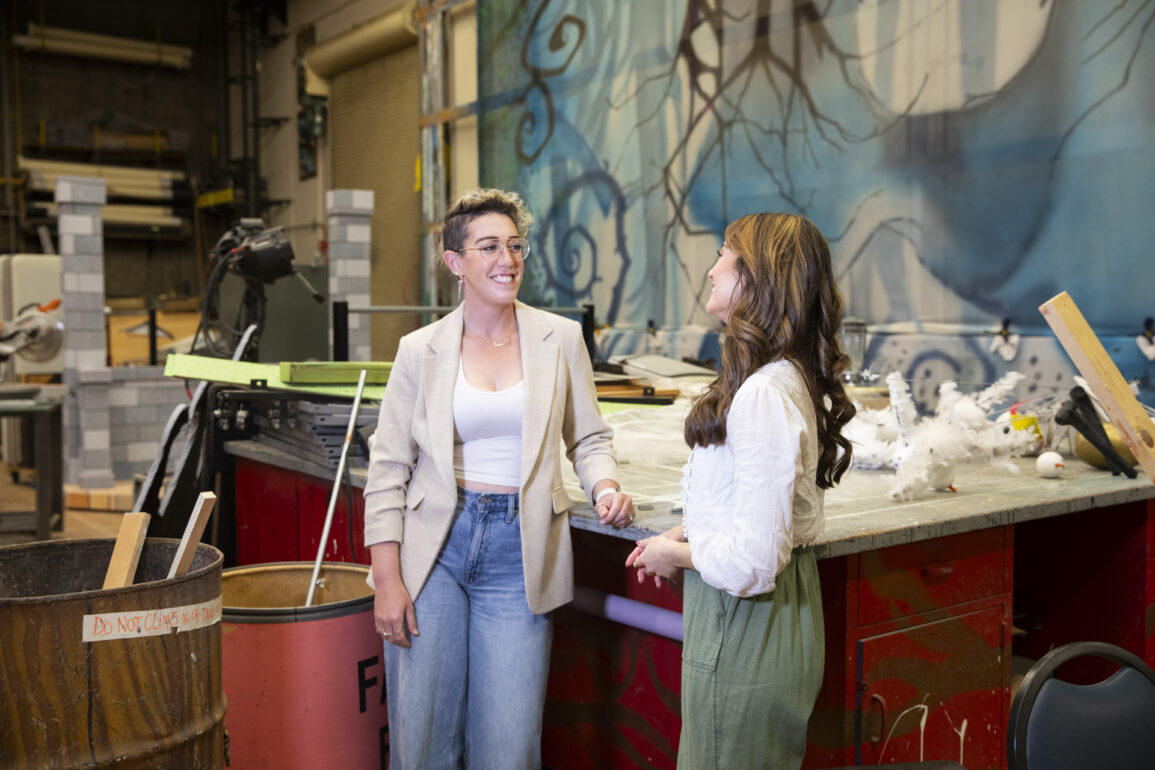March 28, 2024
A new, original play will premiere in the Sacramento region this summer, though at an unconventional location.
A Sacramento State professor and recent alumna are facilitating theater classes at Folsom State Prison, helping incarcerated individuals find their voice and share their stories. The goal is for participants to write, produce and perform an original play in June.
The workshops are organized through Prison Arts Collective (PAC), an Arts in Corrections coordinating organization with the California Arts Council, which began a partnership with Sac State in the last year. The program is the second PAC initiative at Sac State.
For Erin Kaplan, a Sac State professor of Theatre and Dance who is leading the group, the PAC partnership is a culmination of a decades-long passion for prison theater that began when she was an undergraduate student at The University Michigan.
Originally slated to launch in fall 2022 at Folsom women’s prison, the project was pushed back to this spring after that facility closed in early 2023. In partnership with PAC, Kaplan was able to hire recent Sac State alum Scarlett Pascual to assist with the program.
“Art is one of the most powerful tools that we have, and giving people access to that and telling them that it’s a power is a beautiful thing.” — Scarlett Pascual, Sac State alum
Kaplan and Pascual visit the prison about three times a month, working with 18 incarcerated individuals. Their initial work has focused on helping participants get to know and trust one another and become comfortable working together. They play “theater games,” such as one, designed to teach focus, in which half the men wear blindfolds while the other half lead them around the room using only a single sound.
More recently, each participant wrote and performed a personal monologue, material that will form the basis of their play-in-development. Kaplan and Pascual provided feedback.
Kaplan said much of the early work has focused on helping participants understand that acting is an ability they already have.
“I often find that guys are like, ‘Oh, I’m not an actor, I’m not an actor,’ ” she said. “And I’m like, ‘You’re in prison. You are performing all day, every day,’ and getting them to see that the performance of everyday life to survive in the prison is a skill that they have acquired, and that that is very much akin to acting.”
Eventually, the plan is for the participants to write and perform an original play. Early concepts have focused on the idea of a genie who can take the incarcerated individuals back to a specific time, providing the opportunity to change that moment in their lives.

“They’ll have an idea, and I’ll sort of ask dramaturgical questions, like, ‘Ok, but why? Why is that happening? How did that happen? What do we call that? Are we in the now, or are we in the future?’ ” Kaplan said. “I know how to make plays, so what I do is really use those skills to help structure the ideas that they have. That’s how I see my role, and that’s the same when I’m devising with my undergraduate students.”
The benefits of a prison theater program are numerous. At its core, Kaplan said, theater is about empathy. Allowing incarcerated individuals to share their stories through theater not only helps those outside the prison walls see the humanity of those within, it also helps those individuals see their own self-worth.
“When people feel like they don’t matter, they think like their choices don’t matter, and they see no point in making better choices because what they do is seen as being irrelevant to the world,” Kaplan said. “When you give people an opportunity to have their voices and stories heard, it makes them feel valued. It makes them want to do things that are valuable.”
That’s a sentiment that Pascual, Kaplan’s co-facilitator, shares.
“They express how much it means that people on the outside still believe in them, and that’s such a powerful thing to hear,” Pascual said. “Art is one of the most powerful tools that we have, and giving people access to that and telling them that it’s a power is a beautiful thing.”
Since graduating in December with a degree in Criminal Justice, Pascual has been pursuing her dual interests in acting and advocacy for victims of domestic abuse and sexual violence. When Kaplan, her former theater professor at Sac State, offered her the job with the prison theater program, she jumped at the opportunity to gain new skills as a facilitator while exploring another side of the criminal justice system.
“Sometimes people just need somebody to listen to, and that goes hand-in-hand with victim advocacy,” Pascual said. “Art can be really healing, and I want to combine art, whether its theater or writing or whatever it may be, into whatever future career I may have.”
Kaplan and PAC hope to continue the program, hiring two students each semester to build a pipeline of Sac State graduates with the skills to lead similar programs should they want to.
Longer term, Kaplan said she hopes to create a service-learning course, similar to what PAC has done with Cal Poly Humboldt and San Diego State University, where, in addition to facilitation skills, students also learn about the history of the criminal justice system, the school-to-prison pipeline, and inequities in the system.
“The ability and skill to create spaces where people who are told that their voices don’t matter are able to tell stories and have those stories heard is a profound gift as an artist and as a theater-maker,” Kaplan said. “For our students to see that it’s not just ‘go to Broadway or you give up.’ There are so many different ways that we can use theater and performance to make the world a better place.”
This post was originally published on this site be sure to check out more of their content.







